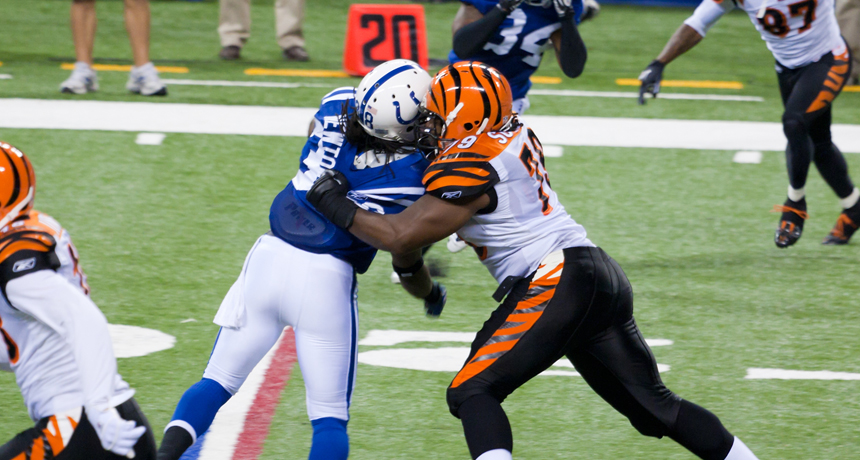NFL players’ brains take a hit
Brain scans reveal hidden abnormalities in retired football pros

BIG HIT Repeated hits to the head over the course of a football player's career can leave lasting damage to the brain.
Alexey Stiop/Shutterstock
Brain scans reveal hidden abnormalities in retired football pros

BIG HIT Repeated hits to the head over the course of a football player's career can leave lasting damage to the brain.
Alexey Stiop/Shutterstock